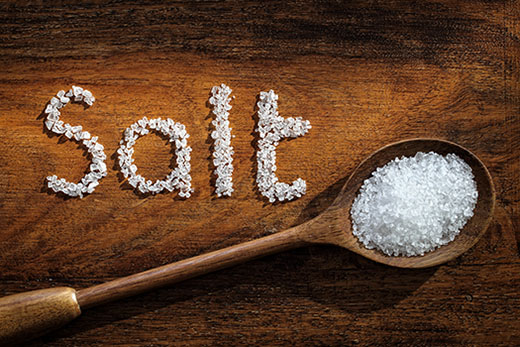The name for low blood sodium levels is hyponatremia. It can hit at any age, but it's more prevalent in senior citizens. It's especially prevalent in seniors who take certain medications, have problems with adrenal and thyroid gland function, or have decreased kidney function.

Seniors who ingest too little sodium are at risk of having low blood sodium levels. Sweating profusely without replenishing lost sodium can increase the chances of having low sodium levels. Diabetes can also deplete sodium levels by having a person drinking too much water. Cirrhosis is another risk factor.
Why is Sodium Important?
Sodium is a mineral that is vital to your overall health. Its role in the body is to maintain proper fluid levels and to aid muscle and nerve function. When levels go too high or too low, nerve and muscle function is impacted.
Some of the common symptoms of hyponatremia include confusion, fatigue, headaches, muscle spasms, nausea, and vomiting. Left untreated, a person whose sodium levels are too low can have a seizure or slip into a coma.
A New Study Points to Cognitive Skills in Senior Citizens
In February 2018, the American Society of Nephrology looked at the ties between low sodium levels and cognitive skills. In this study, more than 5,400 elderly men were tested for almost five years. About 100 of those men experienced low sodium levels. Those with hyponatremia showed lowered cognitive function. The society felt those men had a 37 percent higher chance of experiencing long-term cognitive impairment.
What Can You Do?
Make sure your parent goes for regular checkups and has sodium and electrolyte levels tested. Heart health is impacted by things like sodium and potassium levels. If the sodium levels are low, talk to your mom or dad's doctor about diet and any medications that might be lowering the sodium stores in the blood.
If you can't find a medical reason for lower sodium levels, start a food journal. Track how often your mom or dad drinks water and what foods they eat. It could be they're simply not eating enough of foods that have natural sodium. Dietary changes may help.
If you can't monitor your parent's activities, caregivers can help. They can spend a few hours each day on a schedule that works best for you and your parents. They can keep a journal of what your parent is eating and drinking. They can prepare nutritious meals and make sure your parent is following doctor's orders.
Learn more about other benefits caregivers offer. Call a home care agency to get started.
If you or an aging loved-one are considering hiring Elder Care in Culver City, CA, please call Mom's Home Care and talk to our friendly, knowledgeable staff.
Our number is 323-244-4789.













